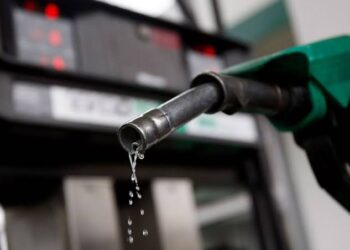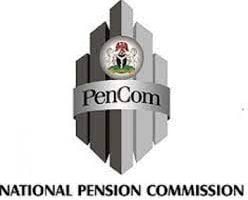President Bola Ahmed Tinubu has said there won’t be further increase in the pump price of premium motor spirit otherwise known as petrol.
Similar assurance was also given by the Nigeria National Petroleum Company Limited (NNPCL).
Addressing State House correspondents Tuesday after a meeting with President Tinubu, his Special Adviser on Media and Publicity, Mr Ajuri Ngelale, said the president also assured that all loopholes associated with the smooth delivery of petroleum products in the country would be addressed immediately.
This is coming as Nigeria’s headline inflation rate for the month of July 2023 increased to 24.08 per cent from 22.79 per cent recorded June 2023.
Tinubu assures
Speaking to journalists in Abuja, Ngelale said: “The President wishes to state that it is incumbent upon all stakeholders in the country to hold their peace. The President wishes to assure Nigerians, following the announcements by the Nigerian National Petroleum Company Limited (NNPC), just yesterday that there will be no increase in the pump price of petroleum motor spirit anywhere in the country. We repeat, the president affirms that there will be no increase in the pump price of petroleum motor spirit.”
On the threat by the Organised Labour to embark on strike without notice if the pump price of PMS is increased, Nglale said the government sees that as a premature warning.
“The President wishes to state that it is incumbent upon all stakeholders in the country to hold their peace. We have heard very recently from the organized labour movement in the country with respect to their most recent threat.
“We believe that the threat was premature and that there is a need on all sides to ensure that fact finding and diligence is done on what the current state of the downstream and midstream petroleum industry is before any threats or conclusions are arrived at or issued,” he said.
On the rumoured plan to return fuel subsidy, the presidential spokesman said: “The market has been deregulated, it has been liberalised and we are moving forward in that direction without looking back.
“The President also wishes to affirm that there are presently inefficiencies within the midstream and downstream petroleum sub sectors that once very swiftly addressed and cleaned up will ensure that we can maintain prices where they are without having to resort to a reversal of this administration’s deregulation policy in the petroleum industry.”
Graphics of supplies in other countries
He said the president had authorised the release of the graphics of his daily briefing on the supply of petrol products to enable Nigerians make comparison with what is obtainable in other countries.
“I wish at this juncture to also provide a set of graphics which the President has authorized me to share with Nigerians that otherwise would be confidential. These are graphics supplied to Mr. President by the NNPCL.
“In the graphics, what you will find is the present cost of refined petroleum motor spirit at the pump in each of the West African nations that neighbour us and I’ll just name some for example, even as I know, you will be showing your audiences the graphics, which the president has graciously approved for public release today.
“Senegal’s pump price today is N1,273 equivalent per liter, Guinea at N1,075 per liter, Côte d’Ivoire at N1,048 per litre equivalent in their currency, Mali N1,113 per litre, Central African Republic N1,414 per litre, Nigeria is presently averaging between N568 and N630 per litre.
“We are presently the cheapest, most affordable purchasing state in the West African sub-region by some distance. There is no country that is below N700 per liter. So, this is the backdrop we have seen that at the inception of our deregulation policy as of June 1 as Mr. President took office, we saw PMS consumption in the country drop immediately from 67 million litres per day consumption, down to 46 million litres per day consumption. The impact is evident,” he said.
He said the president expressed optimism that the situation would soon be under control, and called for patience and understanding as government strives to resolve the problem.
“What it also does mean though, is that we are not at the end of the tunnel. There is still a bit of darkness to travel through to get towards the light. And we are pleading with Nigerians to please be patient with us.
“And as we promised from the beginning, we will be open with Nigerians, will be transparent with them. And we are ready to show you exactly what it is that our nation is facing with respect to the illiquidity in the market in terms of foreign exchange, as a result of what is now known to have been a gross mismanagement of the Central Bank of Nigeria over the course of several years preceding this time,” Ngelale further said.
NNPCL speaks
Corroborating the position of the presidency, the NNPC Limited stated on its official X handle (previously Twitter) Monday night, that the company had no intention to further raise the pump price of petrol.
“Dear esteemed customers, we at NNPCL Retail value your patronage, and we do not have the intention to increase our PMS pump prices as widely speculated.
“Please buy the best quality products at the most affordable prices at our NNPCL Retail stations nationwide,” the company tweeted.
Presently, a litre of petrol sells for N617 after it was increased to N425 per litre from N179. This has led to a massive increase in transportation cost with the NBS in its Transport Fare report for July saying the average price for transport fare paid by Nigerians in the month of July rose by 97.88 per cent.
In the midst of all this, oil marketers had in several reports making the rounds, said there may be another round of pump price increase as crude prices rises in the international market.
Some even say a litre of petrol may sell between N680/litre and N720/litre next week if the FX situation does not increase.
Our findings revealed that the naira exchanged for N942/dollar at the parallel market while at the I&E Window, it exchanged for N746 to one dollar.
Inflation surges to 24. 08%
Meanwhile, Nigeria’s headline inflation rate in July 2023 increased to 24.08 per cent from 22.79 per cent recorded June 2023.
In its Consumer Price Index (CPI) report for the month of July posted on its website Tuesday in Abuja, the National Bureau of Statistics said the figure represents a 1.29% percentage point rise from June headline inflation while on year-on-year basis, the inflation rate was 4.44 percentage points higher compared to the rate recorded in July 2022, which was 19.64%.
The bureau said the increase was driven by the prices of goods and services.
The NBS said: “These increases were witnessed in Food & Non-Alcoholic Beverages (12.47%), Housing, Water, Electricity, Gas & Other Fuel (4.03%), Clothing & Footwear (1.84%), Transport (1.57%), Furnishings & Household Equipment & Maintenance (1.21%), Education (0.95%) and Health (0.72%).
“Others are Miscellaneous Goods & Services (0.40%), Restaurants & Hotels (0.29%), Alcoholic Beverages, Tobacco & Kola (0.26%), Recreation & Culture (0.17%) and Communication (0.16%).
“On a month-on-month basis, the Headline inflation rate in July 2023 rose to 2.89%, this shows an average increase of 0.76 percentage points on the general price level relative to June 2023.”
The report also showed the percentage change in the average CPI for the twelve months ending July 2023 over the average of the CPI for the previous twelve months, was 21.92%, showing a 5.17% increase compared to the 16.75% recorded in July 2022.
“The food component sub-index for July 2023 increased by 26.98% on a year-on-year basis; this was 4.97% points higher relative to the rate recorded in June 2022 (22.02%).
“The rise in Food index on a year-on-year basis was caused by increases in prices of Oil and fat, Bread and cereals, Fish, Potatoes, Yam and other tubers, Fruits, Meat, Vegetable, Milk, Cheese, and Eggs,” the report further indicated.
The NBS further observed that the Food inflation rate on a month-on-month basis, in July 2023 rose to 3.45%, indicating 1.06% points higher compared to the rate recorded in June 2023 (2.40%).
“The average annual rate of Food inflation for the twelve months ending July 2023 over the previous twelve-month average was 24.46%, indicating an increase of 5.71% points from (18.75%) recorded in July 2022.
“Core inflation, which is All items less farm produce, that is excluding the prices of volatile agricultural produce, stood at 20.47% in July 2023 on a year-on-year basis; it rose by 4.41% when compared to the 16.06% recorded in July 2022.
“This was driven by an increase in prices of Passenger Transport by Air, Passenger Transport by Road, Vehicle Spare parts, Medical Services, Maintenance and repair of personal transport equipment etc. On a month-on-month basis, the Core inflation rate stood at 2.11% in July 2023.
“This shows an increase of 0.34% when compared to the 1.77% recorded in June 2023.
“The average annual core inflation rate for the twelve-month ending July 2023 over the previous twelve-month average stood at 18.84%; this was 4.31% points higher than the 14.53% recorded in July 2022” the report also revealed.
State-by-state index
The NBS also gave a state-by-state index of the inflation with Kogi as the highest.
“The analyses of the states show that the all-item index for July 2023, on a year-on-year basis was highest in Kogi (28.45%), Lagos (27.30%), Ondo (26.83%); while the states with slowest rise in headline inflation on a year-on-year basis were Borno (20.71%), Jigawa (20.85%) and Sokoto (20.92%) during the month.
“On a month-on-month basis, July 2023 headline inflation recorded the highest increase in Kogi (4.99%), Abia (4.12%), and Akwa Ibom (4.07%). On the other hand, Jigawa (0.16%), Taraba (1.09%) and Yobe (1.10%) recorded the slowest rise on month-on-month inflation.
“State-level analyses of the food index in July 2023, on a year-on-year basis, showed the highest increases in Kogi (34.53%), Lagos (32.52%) and Bayelsa (31.31%). While Jigawa (20.90%), Sokoto (21.63%) and Kebbi (22.45%) recorded the slowest rise in Food inflation during the month,” the NBS data revealed.
As inflation surges to 24.08%… Tinubu, NNPCL rule out further price hike




